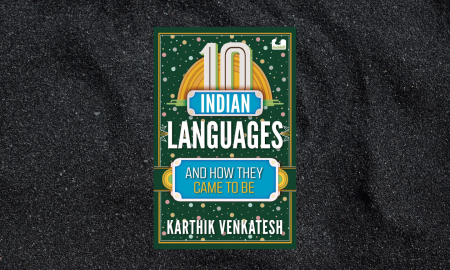Our longest days are barely over. What feels like a sci-fi feature set in a distant, dystopian future is the current reality for millions of Americans that were forced into home confinement for three months, jobless, living off emergency bills tucked under mattresses for occasions we couldn’t have imagined would come close to this. Others were not as lucky, scrambling for whatever work they could find to compensate. Others are afraid to reach out, afraid to offend, afraid to strike up comforting small talk when the real issues weigh heavy on the conscious. The world is as lonely and as confuddled as it ever was.
In the face of the current global pandemic, nobody is safe. Nobody is in control. We’re all bobbing around in our lifeboats, dumbfoundingly looking on at the destruction we narrowly escaped. The country is now opening its rebuilding phases, but we’re faced with yet another problem, the most blatant and under fire: the problem of racism. As outdoor patios fill up and citizens file into shopping plazas, we try to return to some sort of normalcy, if even possible. But we must ask: Is the worst over, and if not, where do we go from here?
Blogging as Activism
For a music journalist, solutions of comfort, in our immediate worlds, are simple: If you like art, support the arts. Catch up on all of the albums you didn’t get to listen to throughout the year. Watch all the music biopics and documentaries you didn’t have the time to watch. Enjoy live-streaming concerts and donate to your favorite artists’ Patreon accounts. Donate to artists who are donating to organizations like the NAACP Legal Defense Fund. Read. Read. Read. Write. Write. Write.
Artists are the essential workers of this pandemic, this moment. We have the chance to be heard, to change the status quo. This power is why it’s important to SUPPORT THE ARTS on a local scale first. Change trickles from the inside out.
As a writer of activism, because that is what many news journalists-turned-bloggers are called to do in the changing digital landscape, I’ve sought out stories that traditional media outlets would dare not touch. Unhappy with the status quo, I didn’t settle. I owed it to my community, to tell the truth about the BIPOC arts and small business populations in Buffalo, NY, one of the most segregated cities in America. For me and others, this was a step in the right direction. There’s never a “right” time for sensitive subjects such as discrimination in the arts, but there’s a time. You’re either letting the cat out of the bag or letting him suffocate to death.
I’ve been taking some time away to re-prioritize, to really listen to recordings as life soundtracks and not just linear one-off criticisms of pop culture to pretentiously write and gripe about. One album that’s surprisingly brought new meaning into my experience is Guelph, Ontario producer Elaquent’s album, Forever is a Pretty Long Time (released February 2020). The concept is emblematic of how marginalized identities in the arts, including me, experience the world. We dodge crises every day, not just in a mask for three months. We wear one our whole lives.
The album reminded me why I love writing about music with breadth, and why I continue to support independent musicians. Forever is a Pretty Long Time starts with a smoky saxophone loop on “Guidelines,” which features legendary underground MC Oddisee. The saxophone seems as though it could go on forever until a blaring bass switches up the feeling entirely.
The 30-second interlude places me in the annals of contemporary jazz, in a seat at the historic Colored Musicians Club in my city of Buffalo, NY, where, if alive today, I would soak up a set from fellow Buffalo native, Grover Washington Jr. That would almost certainly include his epic saxophone solo from his 1976 composition, “Mister Magic,” and perhaps a rendition of “Just the Two of Us” featuring the late Bill Withers, where the horn section’s inclusion was mandated by record companies. In trying to dismantle the status quo, both artists were the “firsts” of their times, and, when you’re the first to do anything, you often aren’t the first to benefit from that change, from that labor. But what both artists did was achieve success on their own terms. Influenced by their careers, I’ve joined a community of bloggers and writers who are doing the same with what they got.
Suffering and Accepting
For serious artists, leaving a profound impact in a legacy granting critics with more than scythes for Twitter banter and fans with more than “dear diary” lullabies to fall asleep to is the goal. The legacy is in the ability to transcend a moment or feeling we may take for granted, and distill from it the values needed to guide our moral compass into a forever we can live with, to leave the planet better for the next generation. Again, activism. The soul needs to know where it’s been to get to where it’s going, as the cliched saying goes. Again, change from the inside out.
Elaquent’s beat alchemy honors this. It’s medicine for the mender, who must assess the damage before hitting that sweet spot between suffering and acceptance. That’s what we’re all doing right now, suffering, then accepting. Album collaborators Chester Watson, Guilty Simpson, and Saturn Alexander grapple with their perception of time and their place within the continuum, but they’re mending while at odds with their conflict; the antagonist is the neurosis of being an artist in the music industry against the protagonist, the conscientious mind, wading through the seconds, the minutes, and then the hours of each day lived.
Trip Back in Time
I spoke with the musician who runs the Colored Musicians Club, George Scott, in my hometown, where Grover’s influence helped sprout roots in other jazz subgenres, shortly before the pandemic hit. In the early 90s, George Scott led the Big Band movement in Buffalo and was able to do so with respect for younger generations of musicians experimenting with the art form. Presented in what was considered disenfranchised rock music to a larger, snarkier jazz fan base was an opportunity to do bigger, according to Scott.
“When I was young, I dug Grover, I dug the young guys, because they were speaking my language,” he said. “There were people that were a little resistant to it (the sound we were trying to create), but later on as we (the George Scott Band) were getting more gigs, it finally hit home with people.”
Despite tension aroused by cuts to music and arts education and a refusal to renew music teaching contracts in schools, big band music is still clinging to the zeitgeist in Buffalo; George Scott is active in the network of eight big bands still gigging around the city. He’s also working on the formation of a youth big band for students suffering from these cutbacks as chairman of the Michigan Street Corridor. “I’m working to get that young musician exposed to jazz music,” a strong-willed Scott said.
We don’t often see how an artist is impacted by their laborious undertakings, how time transforms attitude, mindset, and motivation because capitalism creates a dog-eat-dog mentality inside music and the arts. And while serious artists are creating a product for consumption, they’re not superheroes, though the hustle may reveal otherwise; On “Annoyed,” the ninth track on Elaquent’s album, Saturn Alexander shifts our attention to these truths, and to other artists, whose own perceptions of time may cause career setbacks.
Other occurrences inside and outside of an artist’s control, such as microaggressions, whether in the workplace or out of it, can cause setbacks. Saturn’s song is a classic rendering of class struggle, but she searches for no scapegoats. She raps: “My daddy gotta clock and it’s always ahead of time, so I’m always on time if I seek it I make it mine.” As of last year, Saturn Alexander was working in operations at Sprint, and in an interview, she revealed that her 9 to 5 inspired her creativity, often writing verses in traffic to and from her job.
With the same 24 hours in a day like the rest of us, this 25-year-old is proving that being a “working artist” balancing two lives is no longer something to be ashamed of, but really more of a superpower than one may realize. To be bigger, we must do and think bigger, and in a gig economy running on Darwinistic heroism, artists are always asked to split their time, their bank accounts, and yes, their personalities, to fit the bill, to make it work, to offset the powers that be. And we suffer, accept, then rebuild. The next day we wake up and do it all over again. Many of the artists I interviewed have said that this “new normal” of people trying to figure out where they fit in the world post-pandemic isn’t new to them, it’s same-old, same-old.
Back to Life, Back to Reality
Forever is a Pretty Long Time is teeming with impolite deliverances of lived experience in a”white-facing” world. What we think is time slipping away could be us doing what we can or what we must with it because of the institutions we are complicit in. On the fourth track, “Thread Count,” Detroit rapper Guilty Simpson knuckles down his audience with the political rapturing of a most deadly Killer Mike persona: “So instead of support, they play ya short / Still show up to eat with a knife and a fork / I swear to God life’s too short / They want me in a box, guarded by pork.” Listeners get a taste of the Detroit underground scene in later bars that acknowledge The Fillmore, where Miles Davis, Otis Redding, and Aretha Franklin famously staged shows, propelling their careers forward, moving them an inch forward — yes, only an inch — in the wake of systemic racism and social injustice. We’re still living that now, in what many writers are labeling a cyclical and rapid fate.
What Forever is a Pretty Long Time has done for me during the time of coronavirus is granted me the gift of time, the time I needed to appreciate the artists preserving their art forms and cultures, and to listen to my music with greater respect for those who have paved the way for independent musicians. It’s also allowed me to reflect on how far I’ve come along in my writing. Freelance writers usually specialize in an area of expertise, but because I had to fight my way into journalism due to discrimination, I had to become an expert on several areas in a very short amount of time, and I never stopped learning. So when people ask me what my writing “specialty” is, I answer with a wink and some poetic wax on the end, “Time. I’ve mastered time.” I read as if I don’t have enough of it.
As we take inventory on our lives and prepare to resume daily operation, it’s essential we add better habits, think bigger, and do bigger things. Time is ours for the taking, to do what we will, what we must.
This movement going on is 600 years in the making. I’m starting to observe more of the offshoot movements going viral that directly apply to my life. One big one is the discussion around the lack of women and BIPOC journalists in music and entertainment. It is indeed a problem that I’ve endured for years. I started writing in 2013, and, sadly, I don’t see the changes that need to happen in terms of the digital landscape at this point in time. Publications are quickly opening their budgets for BIPOC writers and shutting them with as much ferocity. It’s hard for me to tell young writers that I’ve contemplated not writing for a while until I find a home for my voice. Then I look to writers who know more than me. Arundhati Roy wrote this when referring to women in marginalized communities, something I also try to iterate to young writers and artists:
“There’s no such thing as the ‘voiceless’. There are the only deliberately silenced, or the preferably unheard.”
Now my advice is different: Be bold and don’t look back. Be your own authority, and it’s perfectly fine to own up to what you don’t know. Create a new platform. You, the platform. Force your foot through the door, and leave it open a crack to welcome in the discussions that need to be had. Your slant is your sword. My slant is this: We know hip hop is historically “misogynistic” so how can we change that if we don’t cross feminism over into traditional “mainstream” media outlets that aren’t as feminist-leaning? Broaden the audience. Look to see who comes out of hiding. Over the past few days, women staff writers at Complex have come forward with their stories of personal sexism and racism in the workplace. This is a move that deserves a round of applause; Complex is the largest enterprise in digital hip hop media. They need to set the standard for marginalized women pushing pencils (aka writers who aren’t acknowledged for their amazing work, be it paywalls, microaggressions, etc.) at other outlets without this distinguishment.
The reality is, the capitalist operator is a slave of binary thinking. You’re in or you’re out. You’re in syndication or you’re canceled. You’re hot or you’re not. Consumer advertising forces us to choose sides. And you can write about both, and then take your stance. In matters of racism, wrong is wrong, and YOU have something new to add to the conversation because of your healthy balance of lived experience and evidentiary support, which can be used to discuss poetry, literature, and music to tell a larger narrative about the culture we participate in. That doesn’t make BIPOC journalists victims of their environments nor all-knowing music pundits. We aren’t self-centered armchair psychologists telling others how to live, either. Our experiences make us honest thought leaders who’ve got stories to tell about the people we meet and the art we consume.
A work’s translucency and transferability hinges on an artist or writer’s desire to make it so. Elaquent desires to connect with his work, without purporting to be all-knowing within his genre. He dodged the “toxic genius” we see infecting the industry and produced more than a record with big-name samples and cuts. What a timely record it was. None of us are all-knowing.
None of us could’ve imagined what this moment would feel like in our country’s history, yet here it is. And now we suffer, accept, and rebuild.
***
Photo by Janine Robinson on Unsplash





